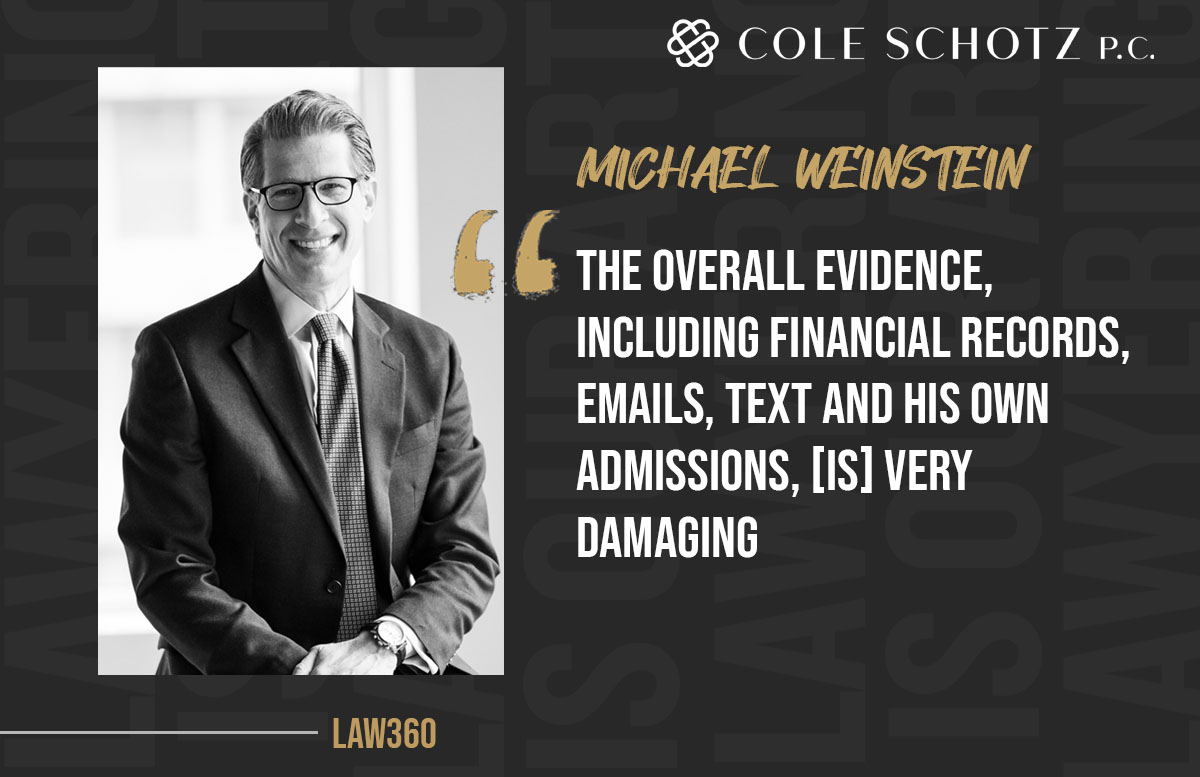NJ Tax Stop: New Millionaires’ Tax May Spur High Earners’ Exit
On March 5, 2019, the New Jersey governor’s fiscal year 2020 budget was released.[1] Since then, Gov. Phil Murphy has been actively promoting his budget proposal, particularly on lowering the threshold for the 10.75% millionaires’ tax from $5 million income to $1 million — the new millionaires’ tax.
Most recently, on May 6, 2019, at a town hall meeting at an Ewing, New Jersey, firehouse, Gov. Murphy stated that the increase in tax revenue from the original millionaires’ tax was a “pleasant surprise” and he seeks to use it to “sweeten[] the pot” on his new millionaires’ tax proposal by substantially increasing property tax relief in fiscal year 2020.[2] This includes incentivizing municipalities and counties to consolidate services and providing nearly $283 million in funding for homestead benefits for New Jersey homeowners.[3] Stating that he is not “playing class warfare,” he told the town hall gathering, “We have to grow the pie and make sure everybody gets a piece of the pie.”[4]
The Legislature has yet to agree with the governor with less than two months remaining before the budget deadline on July 1, 2019, the start of a new fiscal year for the state.[5] In addition to the governor’s budget, his other legislative goals have been caught in a quagmire, with his less-progressive Democratic counterparts controlling the Legislature being unable to come to an agreement on the legalization of recreational marijuana in March this year. Further political drama has ensued around the New Jersey Tax Incentive Task Force formed by the governor in January 2019 to investigate $11 billion of tax incentives awarded for economic development in the past decade, including to the city of Camden. Stephen Sweeney, president of the New Jersey Senate, along with Assembly Speaker Craig Coughlin, D-Middlesex, have voiced opposition to Gov. Murphy’s proposals.
The governor’s budget proposal will likely cause the most concern among earners of over $1 million who may now be subject to the 10.75% rate. At a certain point, when faced with a disproportionately high tax bill as compared to sister states, wealthy New Jersey taxpayers will not protest — they will leave. In fact, the last time the millionaires’ tax was imposed, in 2009 for one year, the net revenue gain was less than 60% of the amount that was expected because taxpayers affected sought out strategies to minimize their tax impact.[6] The impact of the current millionaires’ tax is further compounded by the recently enacted federal limitation on the state and local tax, or SALT, deduction, as discussed further below. Now, as then, the impacted individuals will look southward, and not to Atlantic City or Cape May, but to such states as Florida and Texas that levy no personal income tax. They will likely take their businesses with them to sever all domicile and income sourcing ties with New Jersey, thus negatively impacting economic stimulation, which is at the center of current budget negotiations.
Residency Planning
This is not the first time wealthy New Jersey taxpayers have reason to worry about holding on to their share of wealth. Even before the enactment of the 10.75% tax rate in July 2018 for those earning above $5 million annually, New Jersey was one of the highest income tax states in the country at the maximum tax rate of 8.97%.[7] The sting is especially painful for New Jersey taxpayers who have filed, or will be filing on extension, their 2018 federal income tax returns. The Tax Cuts and Jobs Act of 2017 imposed a limit of $10,000 on the SALT deduction for state and local income, sales and property taxes paid.[8] This cap on the federal deduction has increased federal income tax for New Jersey residents with high income and property taxes. This, coupled with the potential 10.75% income tax on those who make more than $1 million per year, will undoubtedly add to the current trend of high-net worth taxpayers seeking refuge to tax-friendly states.
Florida, which imposes no personal income tax,[9] has been a long-time favorite for “snowbirds” flocking south in the winter for enough days to change residency. But changing residency is more complicated than just purchasing a home in Florida and spending over 183 days there. Those who are seriously considering making the move for tax savings should keep in mind the following considerations explored in the rest of this article and should expect New Jersey to ramp up its residency audit program.
Domicile Versus Statutory Residence
New Jersey statute defines a “resident taxpayer” as any individual who is domiciled in New Jersey.[10] While a residence requires physical presence in a state, domicile requires both physical presence and the intent to make that state one’s fixed or permanent home, to which one intends to return after a vacation, business trip or other type of absence.[11] An individual can have more than one residence, but only one domicile.[12] To change domicile, one not only has to establish the new permanent home, but also abandon his or her prior domicile.[13]
A “statutory resident” is someone who is not domiciled in New Jersey, but who (1) maintains a permanent place of abode in the state, and (2) spends more than 183 days in the state during the taxable year.[14]
Income Sourcing
The goal of successfully changing one’s domicile to a low- or no-income tax state is to minimize income tax by filing a nonresident return to report only income sourced to New Jersey or not be subject to New Jersey income tax at all if there is no New Jersey-source income.
All income, from wherever derived, is taxed by New Jersey for a domiciliary or statutory resident of New Jersey.[15] By contrast, nonresidents are taxed in New Jersey only on certain categories of income sourced to New Jersey. Types of New Jersey source income of nonresidents are listed in the New Jersey statute, such as compensation and gains derived from sources within New Jersey, including income from ownership of real estate or from entities that own real estate in the State, as well as allocated income share of a New Jersey pass-through business.[16]
Pass-Through Business and Nexus
If an owner of a New Jersey pass-through entity relocates to a low-tax state, business entity-level income allocation is necessary to determine the shareholder’s or partner’s income allocation as a nonresident of New Jersey. Income allocation at the entity level, particularly once someone changes residency to Florida, can help achieve overall state income tax savings.
If a taxpayer is a partner in a partnership, shareholder of an S corporation, or member of a limited liability company in New Jersey, as a resident he or she is required to pay tax on his or her pro rata share of the pass-through entity’s income, without regard to the entity-level sourcing rules. By contrast, a nonresident only reports and pays tax on his or her pro rata share of the entity-level income allocated to New Jersey.[17]
Under New Jersey sourcing rules, an entity can apportion less than 100% of its income to the state based on the level of its sales receipts in the state compared to everywhere else. This is the case even if it maintains its regular place of business only in New Jersey while making shipments or deliveries and/or having other physical contact with other states.[18] The “single sales factor fraction” formula (which phased out the three-factor formula from 2012 to 2014) allocates the entity’s income based on a ratio of sales receipts from New Jersey over the entity’s total receipts within and without the state during the same period.[19]
Because New Jersey allows income allocation at less than 100% and no longer requires recapturing of income untaxed in other states after the repeal of the “throw-out rule” in 2010 if an entity does not have physical or economic nexus in a given jurisdiction it can exclude this income from tax in any jurisdiction.[20] This benefit, in turn, passes through to the partner or shareholder of an S corporation when he or she is a nonresident of New Jersey, because only income sourced to New Jersey will be taxed by New Jersey. As a simplified example, if 5% of an entity’s $10 million of income is sourced to New Jersey based on receipts, a resident 50% S shareholder[21] or partner[22] will need to report $5 million of income, whereas a nonresident 50% shareholder or partner will only report $250,000.
Technically, in this scenario, the New Jersey resident is required to report and pay tax as a nonresident on income allocable to other states based on the entity-level nexus in other states. Then the New Jersey resident can claim a resident credit for such taxes paid in other jurisdictions.[23] Alternatively, arbitrarily allocating (A) 100% of pass-through income on a New Jersey resident return, or (B) allocating 100% on a nonresident return where the business is physically based and claiming resident credit on such income in the taxpayer’s state of domicile can expose a taxpayer to double-tax in two states. In the event of an audit from another jurisdiction where tax is assessed, the taxpayer could later find himself or herself in a battle with New Jersey to obtain a refund of taxes previously paid.
In light of the above, when reporting as a nonresident of New Jersey, there could be significant tax savings through the conscious exercise of income allocation required on a nonresident return, rather than simply stating that the allocation ratio is 1.0. When undertaking the exercise correctly for purposes of filing a nonresident return, it is incumbent on the return preparer to identify income that is not sourced to New Jersey, including such income as would not otherwise be taxed by any other jurisdiction if the pass-through entity has no physical and/or economic nexus there. In addition to following correct nonresident allocation and reporting requirements, this would allow the taxpayer to avoid tax altogether on such income not subject to income tax in another jurisdiction where it is properly sourced.
Residency Audit and “Day Count” Calendar
When an individual who has been filing New Jersey resident returns for many years suddenly stops filing a resident return or files a nonresident return in New Jersey, the New Jersey Division of Taxation may wait two or three years while potential liability accrues and then audit such taxpayer.[24]
In an audit, assuming the taxpayer is able to successfully establish a change of domicile, it is critical to substantiate his or her “day count” calendar for the tax year in question. The burden is on the taxpayer to overcome the presumption that any “unsubstantiated” day was not spent in New Jersey. Documentation includes bank statements, credit card statements, EZ Pass records, cellphone records, a phone tracking application, such as Monaeo and airline flight records to show the exact time of arrival to, activities in and departure from the state on any given day. Partially substantiated days will be counted as days outside of New Jersey.[25]
Conclusion
In light of the recent increase in the highest income tax rate on those families with earnings of over $1 million, coupled with the federal SALT cap, it is no surprise that wealthy New Jersey taxpayers are seriously contemplating more than ever before a move to a tax-friendly state like Florida. Those taxpayers who are well-advised and plan accordingly may still own a residence, and spend significant time, in New Jersey, while greatly reducing their state tax bill by avoiding residency status in New Jersey.
The flight from New Jersey does not just result in loss of spending power and tax revenue in the state, but also impacts the state’s business infrastructure when former residents no longer commute to the office but rather move their employment and often their entire business and work remotely from Florida. This includes shifting focus to non-New Jersey markets to avoid ties to the state for domicile and income sourcing purposes.
For those willing and able to undertake such residency change, there is significant downside to botching this endeavor, including a protracted audit with an unsuccessful outcome and New Jersey back-taxes owed for multiple years. For this reason, taxpayers seeking a change of residency that is motivated by tax savings should work with competent tax counsel to implement an effective plan.
This article was originally published in Law360.
As the law continues to evolve on these matters, please note that this article is current as of date and time of publication and may not reflect subsequent developments. The content and interpretation of the issues addressed herein is subject to change. Cole Schotz P.C. disclaims any and all liability with respect to actions taken or not taken based on any or all of the contents of this publication to the fullest extent permitted by law. This is for general informational purposes and does not constitute legal advice or create an attorney-client relationship. Do not act or refrain from acting upon the information contained in this publication without obtaining legal, financial and tax advice. For further information, please do not hesitate to reach out to your firm contact or to any of the attorneys listed in this publication.
Join Our Mailing List
Stay up to date with the latest insights, events, and more







